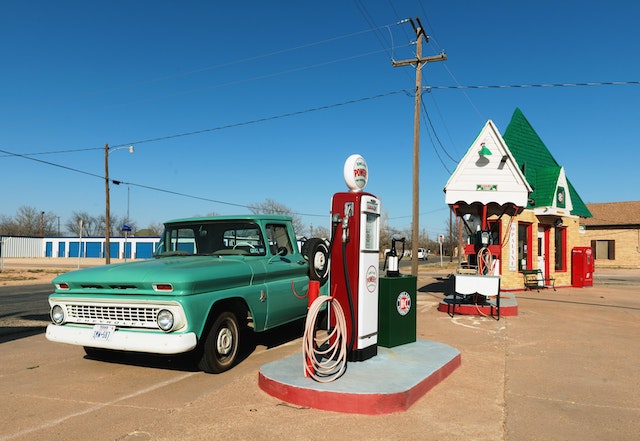If you’ve been paying attention to the news over the last decade or so, you may have heard about changing fuel standards for vehicles. As a driver, this term can be a bit confusing as it isn’t really aimed at us at all. But if you’re out shopping for a new car (or eyeing great deals on used ones), fuel efficiency may well entice you to opt for one vehicle over another.
The ticket price, while important, is just one factor in the overall cost of owning a vehicle today. There are many other costs to consider, as well:
- Plates, stickers, registration and other fees (see below)
- Gas prices
- Auto insurance costs
- Loan terms
- Maintenance costs
- Projected repairs
- Unanticipated events (such as an accident)
It’s hard to anticipate how all of those costs will play out in the years ahead. But fuel standards have one side benefit: they can ultimately help you spend less on gas in the long haul.
What Are Fuel Standards for Vehicles in the U.S.?
The US has created and partially enforced fuel standards for vehicles for decades. The regulations are among the reasons that sport utility vehicles (SUVs) became commonplace. They are generally larger, heavier and higher off the ground than other cars. There’s a reason these vehicles are sometimes referred to as “trucks.” They were designed in part as a way to create a new category of vehicle and skirt fuel standards for traditional cars.
But as standards change over the years, they’re effectively forcing automakers to design cars that will accomplish new goals in fuel efficiency. Even light trucks are coming in electric and hybrid models, as well as more efficient designs overall.
Fuel Efficiency, SUVs, Climate Change and Environmental Concerns
Fuel efficiency became a more widespread concern as people began discussing climate change and the impact of emissions on the environment. That’s why you may have noticed our government getting involved and attempting to make standards tighter still. Rules and protecting what new cars and trucks must be able to achieve decades from now – even though the technology may not currently be able to achieve this mileage.
Of course, the rules are adjustable. They change with the times and act more as an incentive to automakers than anything else. But they also signal to the public that cultural standards are changing as our car-centric society evolves.
New Cars’ Miles Per Gallon Rising with Tighter Standards
How many miles per gallon do you get? In 1980 it was normal for a car to get just 20 miles per gallon. But as technology changes, cars are becoming more fuel efficient and are therefore able to travel farther on less gas. This helps cut down on the level of greenhouse gasses in the atmosphere, provided people aren’t driving more miles overall.
Your favorite gas guzzler may go off the market, but you can still drive it legally. And as for new models, standards are only an average. Those with 70 MPG will offset ones that operate on a much lower figure.
Rising Interest Rates on New and Used Car Loans
There’s another reason that better fuel efficiency might matter to people today. In the end, it helps cut down on the money folks spend to fuel up – leaving you with more dollars to help pay off your auto loan.
This matters more than ever, as a growing number of drivers are defaulting on new-car loans. The Wall Street Journal recently reported that the average interest rate on a loan for a new car is 9.5% – and over 13.7% for a used one. This is the highest rate the country has seen in years.
CFSC Auto Services Helps Drivers Take Care of Routine Auto-Related Needs
While a handful of states have passed their own stricter fuel standards, most of the Midwest has yet to catch up. But efficiency is often up to the buyer. What isn’t are a number of car-related tasks that can be accomplished by simply heading to a CFSC Auto Service near you:
- Vehicle registration
- License plate renewals
- License plate transfers
- Replacing stolen or lost stickers
When you stop by your nearest CFSC location, we will help you get these tasks taken care of quickly so you can get back to driving legally and safely. While you’re here, tend to important financial services like check cashing, money wiring and electronic bill payment. Check out CFSC Auto Services online to find out more!

